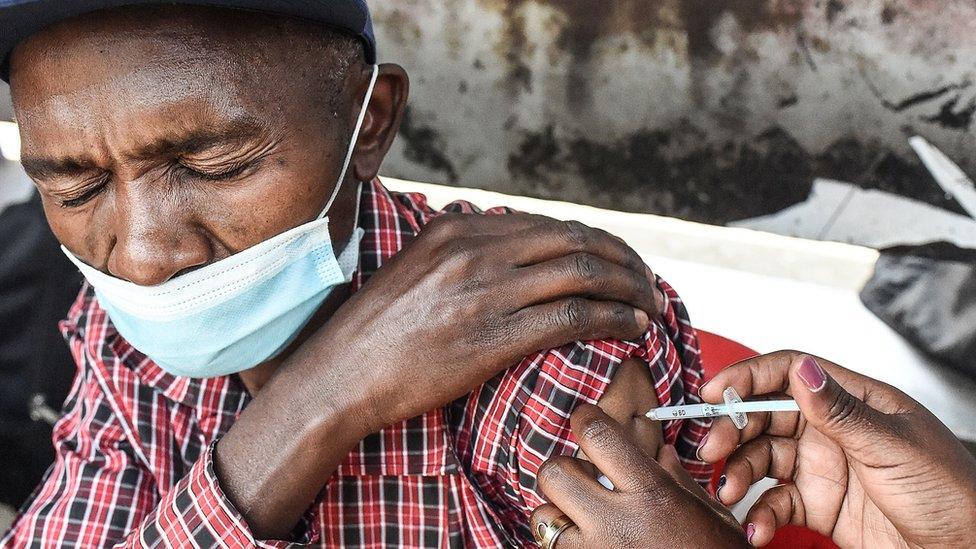UK Covid vaccine rules cause hesitancy - Africa health boss
- Published

A study commissioned by Africa's health body on vaccine perceptions found many people were concerned over safety
The head of Africa's health agency has warned that the UK's policy of not accepting Covid-19 vaccine certificates from the continent could increase vaccine hesitancy.
Dr John Nkengasong said the UK's stance was confusing and had far-reaching implications for vaccination campaigns.
He warned that some people would question why they should get a jab if it was not accepted internationally.
Many Africans are furious, and have called the policy discriminatory.
There has also been an outcry in India, which produces most of the AstraZeneca vaccines distributed in Asia, Africa and Latin America.
"We do not understand why the UK has taken this position" said Dr Nkengasong, head of the Africa Centres for Disease Control and Prevention (Africa CDC).
He told a news briefing it was "a message that creates confusion within our population... creating more reticence, reluctance for people to receive vaccines".
He also questioned why the UK was sending vaccines to Africa but would not recognise those who have had them as being vaccinated.
"This message doesn't really speak to solidarity and co-operation that we all believe are the cornerstone and ingredients for us to emerge from this pandemic together," he said.
Dr Richard Mihigo, from the World Health Organization's Africa region, said countries should now find a way of coming up with a mutual system that would recognise vaccine certificates from different countries.
Last week the UK government removed several countries from its so-called "red list", from where travellers would need to quarantine if they visited England.
However, it said those who had been vaccinated in most countries outside the UK, EU and US would still need to quarantine because the UK would not accept the certificates. The other UK nations - Scotland, Wales and Northern Ireland - set their own health policies.
Initially, the UK refused to recognise the AstraZeneca vaccines produced in India, even though they are exactly the same as those made in Europe. On Wednesday, it said those vaccines were approved but it still does not accept the certificates from most countries.
The British High Commission in Kenya says it is working with the government there on a system to recognise each other's vaccine certificates.
Less than 4% of people in Africa are fully vaccinated against Covid-19, compared to around 54% in the US and 65% in the UK.
A shortage of vaccines is a problem in most African countries but in some, such as the Democratic Republic of Congo and South Africa, vaccine hesitancy is a major issue and the government is trying to persuade more people to get jabs.